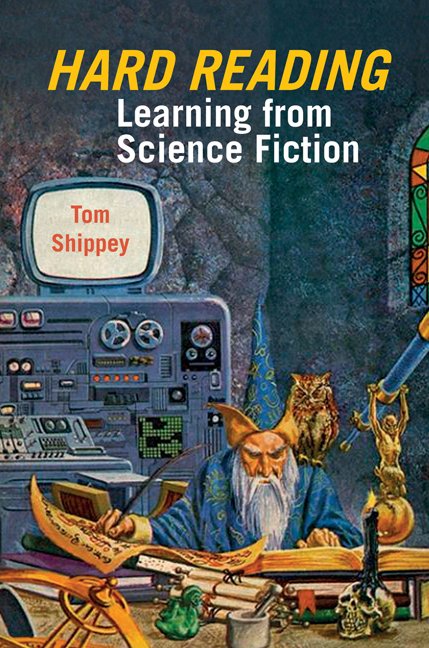Book contents
- Frontmatter
- Dedication
- Contents
- List of Figures
- Note on References
- A Personal Preface
- What SF Is
- SF and Change
- 4 Getting Serious with the Fans
- 5 Getting to Grips with the Issue of Cultures …
- 6 … And Not Fudging the Issue!
- 7 SF Authors Really Mean what they Say
- 8 A Revealing Failure by the Critics
- 9 A Glimpse of Structuralist Possibility
- 10 Serious Issues, Serious Traumas, Emotional Depth
- SF and Politics
- References
- Index
10 - Serious Issues, Serious Traumas, Emotional Depth
from SF and Change
- Frontmatter
- Dedication
- Contents
- List of Figures
- Note on References
- A Personal Preface
- What SF Is
- SF and Change
- 4 Getting Serious with the Fans
- 5 Getting to Grips with the Issue of Cultures …
- 6 … And Not Fudging the Issue!
- 7 SF Authors Really Mean what they Say
- 8 A Revealing Failure by the Critics
- 9 A Glimpse of Structuralist Possibility
- 10 Serious Issues, Serious Traumas, Emotional Depth
- SF and Politics
- References
- Index
Summary
Like the previous one, the essay that follows takes up the issue of the relationship between magic, science and religion, the famous triangle as proposed by Sir James Frazer, in which any two of the three terms are opposed to the third. Magic and science are manipulative, they are supposed to work, while religion is petitionary (a point made firmly by C.S. Lewis at the start of the fourth of the ‘Chronicles of Narnia’, The Silver Chair (1953)). Meanwhile, magic and religion are regarded, by us, as ‘supernatural’, while science is ‘natural science’, two against one once more. The third two-against-one contrast is that religion and science are two powerful forces in the contemporary world, while magic has dwindled to being something only in the imagination, an entertainment.
And what has any of this got to do with science fiction, or fantasy even? There are two points I did not stress in this essay, but might have done if I had thought (or possibly, if I had known). One is that there is a good reason for relating Ursula Le Guin to anthropological theory, which is that she was brought up on it. She gives her own name as Ursula K. Le Guin, and the K. represents her maiden name, which is Kroeber: she is the daughter of two of the most prominent early-twentieth-century structural anthropologists, in the American Boasian tradition, Alfred and Theodora Kroeber. Even more than Jack Vance (see item 6, above) she is saturated in structural or cultural anthropology. Her The Left Hand of Darkness (1969) follows the established sf tradition of imagining a culture with radically different ground rules from our own, but does it semi-professionally, in that the novel incorporates some nine sections of anthropological field notes, which it is the job of the reader to relate to the main story (cognition and estrangement once again; see item 1). Her Always Coming Home (1985) goes even further in the same direction, adding music and myth to the presentation of an imagined culture, and indeed goes so far as to downgrade the sense of story – as do the later ‘Earthsea’ books, Tehanu (1990), The Other Wind (2001) and Tales from Earthsea (2001), written many years after their predecessors.
- Type
- Chapter
- Information
- Hard Reading: Learning from Science Fiction , pp. 182 - 204Publisher: Liverpool University PressPrint publication year: 2016



